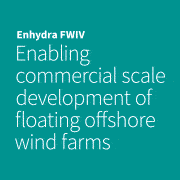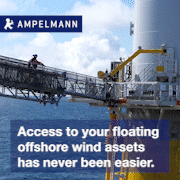As a well-established company with an enviable reputation in the cargo transportation, BBC Chartering understands that you can’t progress by standing still. Organisations need to evolve, to shift with the shifting markets and work hard to identify new opportunities. We spoke to the company’s Jens Meilvang.
PES: It’s great to see you back in the magazine. How has business been since we last spoke?
Jens Meilvang: The global shipping market is still a big challenge for market participants. There was much influx of shipping capacity in the past years, and together with a weak global economic development we are still looking at a more or less fragile market. However, we start to see some signs of relief and here and there some bright spots in our business regarding the carriage of oversized and heavy cargoes.
Also regarding wind power, we had to adapt to a new reality, as the industry was forced to lower its own expectations. Nevertheless, coming from an even weaker market in 2012, we saw an increase in activity regarding wind power developments over the past 12 months, which is a promising sign. Much of this development is owed to wind power developments in North and South America.
PES: Can you tell us about any recent wind projects that you’ve been involved with?
JM: Wind power shipments are not always necessarily tied to a single project; i.e. we also do regular shipments from the continent and from Asia that feed various wind park developments e.g. in North or South America. Nevertheless, amongst the larger shipments we did as designated project carrier we supplied e.g. the “Taltal” and “Valle de los Veintos” projects in Chile in the recent past.
PES: What, from BBC Chartering’s perspective, are the challenges that wind power presents you with?
JM: Technically speaking, our experience from shipping thousands of wind power components, i.e. blades, hubs, nacelles and tower sections made us develop, deliver, and improve high quality routines. If we are the selected project carrier, we have the suitable ship and the appropriate methods that fit the cargo lifting, stowing and lashing requirements. Most challenges we face then, however, are of logistical nature. In contracts of affreightment, the core challenge centers around the mitigation of risk for each party which depends on production schedules and cargo readiness for the agreed shipping dates and time windows.
For instance, we are proud on our past performance regarding the “Valle de los Veintos” project. Here we shipped about 120,000 frt in a total period of only seven weeks! Unfortunately, there are many examples in the industry where winning the assignment goes above delivering the promised performance and as a result we often see cargoes getting re-circulated again if scheduling requirements cannot be met. Sometimes this turns out to be an expensive lesson for charterers.



























